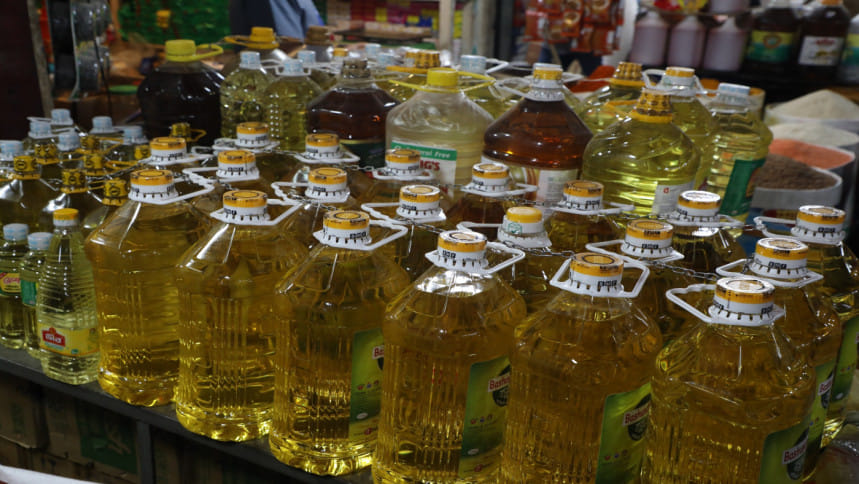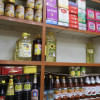Edible oil prices up by Tk 8 per litre

The government yesterday raised the retail prices of soybean and super palm oils by Tk 8 per litre. Bottled soybean oil price was set at Tk 175, and loose soybean oil and super palm oil at Tk 157.
The new rates would be effective immediately and readjusted every month, according to decisions taken at a meeting between ministry officials and industry leaders.
The decision to raise the prices came amid a supply crunch. Millers said they reduced imports as costs went up despite tax cuts.
The government had earlier reduced VAT on imports of soybean and palm oil twice to 5 percent from 15 percent since October 17.
A commerce ministry statement yesterday said the National Board of Revenue (NBR) would extend the rate from December 15 to March 31 next year.
It also fully exempted VAT at the production and trading stages of the highly import-based commodity. As a result of the reduction, the import cost of crude edible oil fell from around Tk 18 to Tk 7 per kg, according to market insiders.
But Mustafa Haider, president of the Bangladesh Edible Oil Association, said the government agreed to raise the retail prices considering the price hike of crude edible oil in the international market, shipping charges and processing fees.
Speaking at a press conference at the commerce ministry in the presence of Commerce Adviser Sheikh Bashiruddin, Haider said the price of crude edible oil has neared $1200 a tonne.
As of November 2024, the price of soybean oil of any origin was $1,145.17 per tonne —- a 4.59 percent increase from the previous month and a 2.39 percent increase from the previous year, according to YCharts, an investment research organisation.
Importers and refiners said they recently requested the interim government to adjust the price of soybean oil in line with the international market.
The commerce ministry in its statement said the Bangladesh Trade and Tariff Commission would send recommendations on reviewing edible oil prices to the commerce ministry on the 5th of every month.
Adviser Bashiruddin said the local millers and dealers delayed supply apprehending the price hike.
He also said the market was almost stable except for edible oil and potato. The prices of some other commodities like poultry, sugar, fish, and vegetables were somewhat stable.
Admitting that potato prices were extremely unstable, he hoped the situation would normalise when new potatoes hit the market within four weeks.
Rice and egg prices were also stable now and sugar price is expected to decline further soon, Bashiruddin said.
NBR Chairman Abdur Rahman Khan, however, lamented that prices of essentials were yet to decrease to expected levels despite significant tax exemptions at the import stage.
Speaking at his office yesterday, he said the prices of eggs and sugar have reduced to some extent, but no change is noticed in the prices of other products, including soybean oil.
Mentioning the government's steps to stabilise foreign exchange rates, he sought cooperation from all, including the commerce ministry, consumers' rights body, journalists, and the consumers.
"Market irregularities will increase if existing irregularities are tolerated. Someone has to protest it," he said, noting that the NBR is providing estimates of tax cuts per kg of each product so that the consumers can find any mismatch.

 For all latest news, follow The Daily Star's Google News channel.
For all latest news, follow The Daily Star's Google News channel. 







Comments